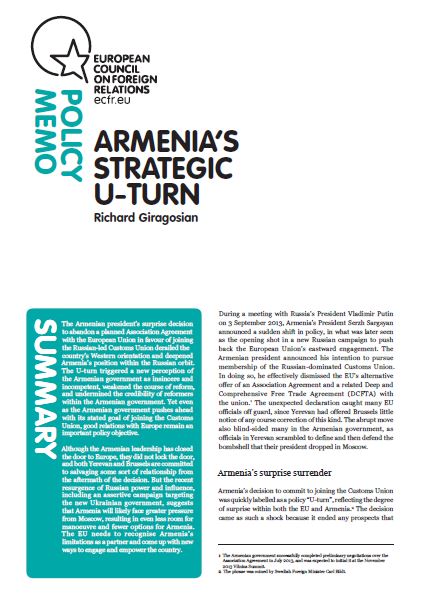Despite Crimea, Finland and Sweden stay wary of NATO
Russia's North-Western neighbours take a cautious approach after events in Crimea
Russia's North-Western neighbours take a cautious approach after events in Crimea

Armenia’s surprising turn to Russia explained
Everything Putin is doing in Ukraine is intended to improve his bargaining position with the West
Mark Leonard talks to Wider Europe expert Kadri Liik and Middle East expert Julien Barnes-Dacy about nationalism and world view in Russia and Syria
Russian gas has a profound effect on Ukraine's politics and economy
I recenti fatti in Ucraina e Crimea pongono diversi quesiti sul futuro di Kiev, i rapporti con l’Europa, il ruolo della Russia, le ripercussioni nella regione post-sovietica, la posizione degli Stati Uniti e le conseguenze della crisi su attori come la Cina, la Turchia e il mondo arabo.
Recent developments in Ukraine and Crimea lead to several questions on the future of Kiev, its relations with Europe, Russia’s role, the consequences on the post-soviet region, the US position and the reactions of some of most relevant international actors as China, Turkey and the Arab region.
The “express annexation” of Crimea has raised the issue of the continuing need for security guarantees in Europe
The annexation of Crimea could begin the dissolution of the western-led international order
The premise of an international order defined by the West and shared by the rest has been shown to be faulty